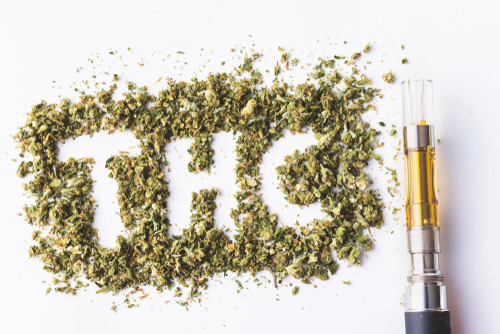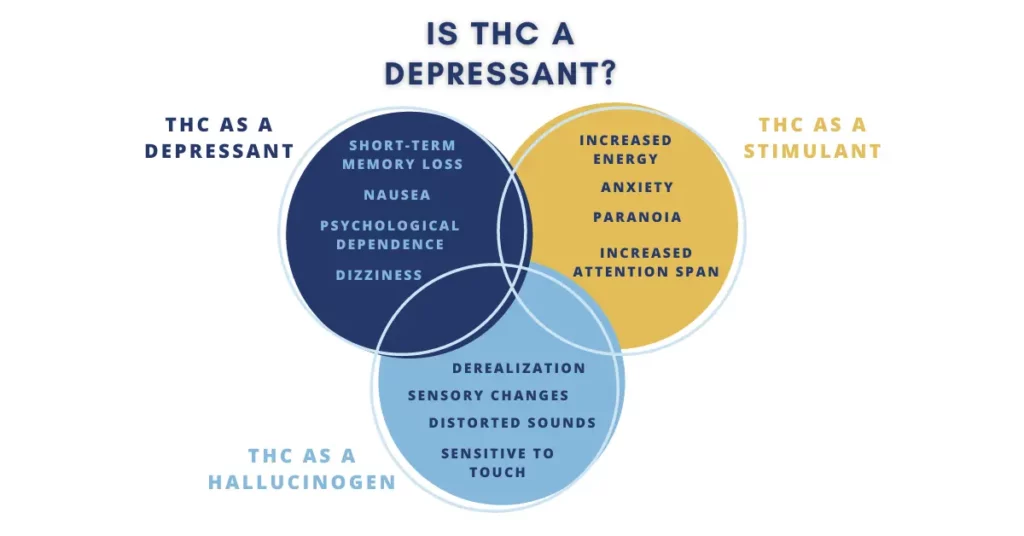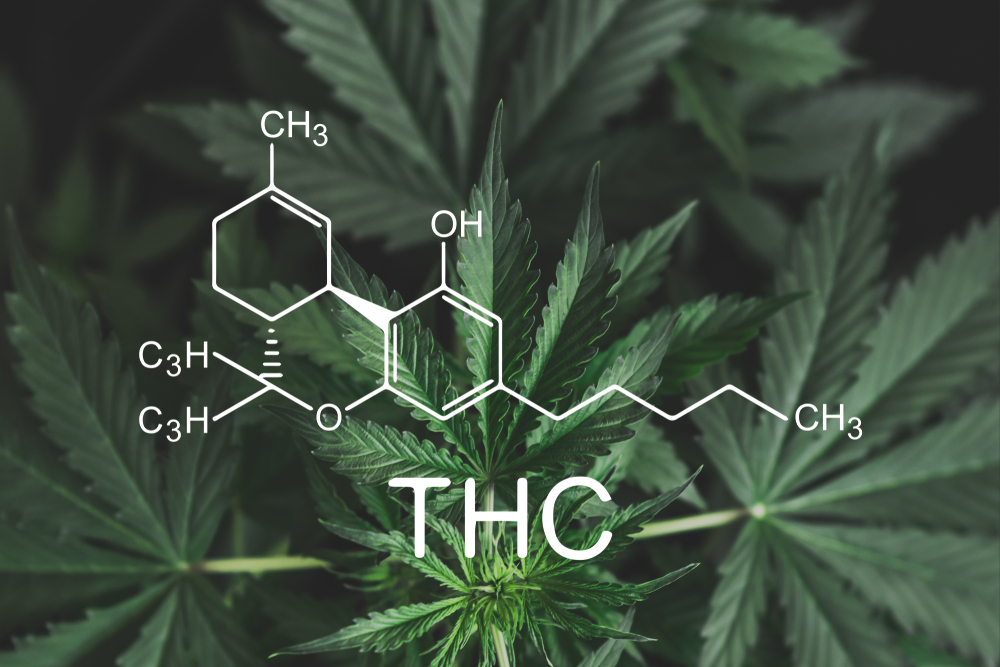Is THC A Depressant? How It Affects Mental Health & More
Most people who smoke cannabis, eat edibles, or consume THC in any form usually describe the high as relaxing and peaceful, which sounds like other depressants like opioids and benzodiazepines. However, that’s not always the case, and THC affects everyone differently and presents different depressant, stimulant, and hallucinogen effects based on various factors.
This article breaks down if THC is a depressant, stimulant, hallucinogen, or combination of all three. Since most depressant substances affect your central nervous system and cognitive functions, we also highlight the long-term effects of marijuana on mental health.

What is THC?
THC, or tetrahydrocannabinol, is a major psychoactive component of cannabis, also known as marijuana, pot, and weed. THC attaches to and activates molecules in your brain called cannabinoid receptors, which disrupt various mental and physical functions. THC can also affect your hippocampus and orbitofrontal cortex, which controls memories and attention span. This is why most people who smoke weed might lose track of time or forget recent events. It also affects the cerebellum and basal ganglia, which regulate posture, coordination, and reaction time.
Over the past few decades, the amount of THC in marijuana has been going up. If you’re new to using marijuana, you might be exposed to higher levels of THC, which could lead to extreme reactions beyond the usual relaxing effects, similar to stimulants and hallucinogens.
Read more: Hashish Vs. Weed: Which Is More Addictive?

Is THC A Depressant?
While THC has effects similar to depressant substances that slow the central nervous system (CNS), it’s not considered a depressant. Some cannabis strains, mostly Sativa, have higher amounts of THC, which can cause new and experienced users to feel more euphoric and energized than when they consume indica strains that contain higher amounts of CBD (cannabidiol).
If a new user tries a cannabis strain with a high THC content, they may experience hallucinogenic effects, even if others who try the same strain have different reactions. Some of the most notable strains of cannabis that have depressant effects include Afghan Kush, Northern Lights, Purple Kush, and Skywalker OG.
Here’s how the effects of THC resemble the three main CNS influencers.
- THC as a depressant: Depressants influence your central nervous system and slow brain function. While this can help treat medical conditions such as insomnia, anxiety, and muscle spasms, THC and other depressants can cause nausea, short-term memory loss, dizziness, and psychological dependence. While THC isn’t as physically addictive as barbiturates or benzodiazepines, you can still develop a tolerance and require more and more to feel the usual effects.
- THC as a stimulant: Stimulants are the opposite of depressants, increasing your heartbeat, energy, and alertness. Some of the most notable stimulants include cocaine, methamphetamine, and amphetamines like Adderall. However, THC can also cause similar effects, increasing anxiety and paranoia and widening your attention span to the point where you can’t focus on one thing.
- THC as a hallucinogen: THC and cannabis are usually stigmatized with claims of hallucinogenic effects. While these effects are possible, they’re rare, and users can smoke cannabis their entire lives without ever experiencing them. Some of these rare effects include derealization or depersonalization, where a user feels detached from their self or environment. Other users might experience sensory changes, like seeing brighter colors, hearing sounds differently or distorted, and becoming more sensitive to touch.

Long-term Effects Of Marijuana On Mental Health
The effects of marijuana can heavily impact individuals already struggling with mental health disorders, such as depression, generalized anxiety disorder, and schizophrenia. While most studies are older and less extensive, some indicate that high amounts of THC can cause lasting chronic effects, including memory loss and cognition impairment.
- THC can also impact antidepressants and anxiety medication: Studies indicate that cannabis impacts your liver’s ability to break down medications, such as antidepressants like Lexapro or Prozac, and anxiety medications such as Xanax and Valium. This is because it interferes with cytochrome P450, a liver enzyme responsible for breaking down toxins. Another 2020 review found that THC and CBD can affect 57 prescription medications and increase the chances of experiencing medication side effects.
- Increases chances of developing schizophrenia: Researchers have also discovered that individuals with variations of specific genes, such as COMT (catechol-O-methyltransferase), have higher chances of developing schizophrenia. Additionally, using cannabis might make the symptoms of schizophrenia appear earlier in life. Normally, signs of this disorder appear in men in their late teens to early 20s and in women in their late 20s to early 30s. However, if you use marijuana, these symptoms could show up about three years sooner.
Read more: Is Delta 8 Withdrawal The Same As Regular Marijuana?

Contact Louisville Recovery Center
If you or someone you know is struggling with marijuana abuse or addiction, contact Louisville Recovery Center. Our addiction treatment center offers experiential, holistic, and individualized care programs focusing on the entire person. When you call, our admissions agents can answer any preliminary questions, including our levels of care, accepted insurance, and aftercare programs.







